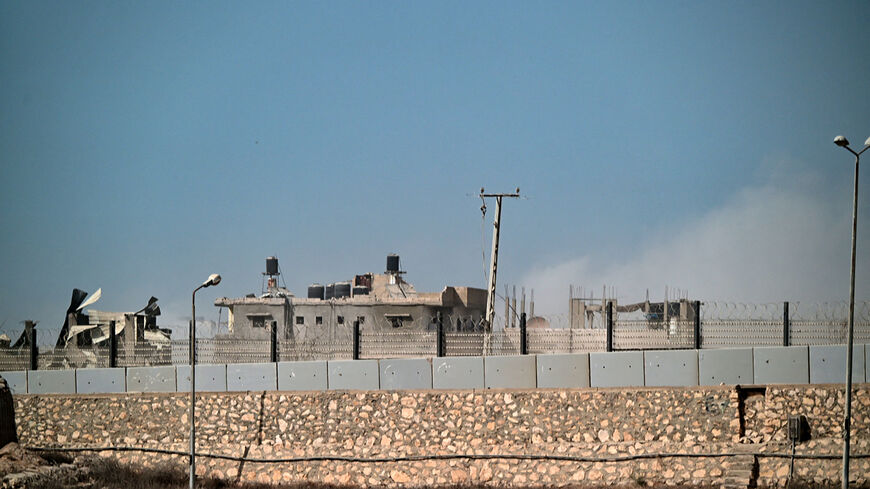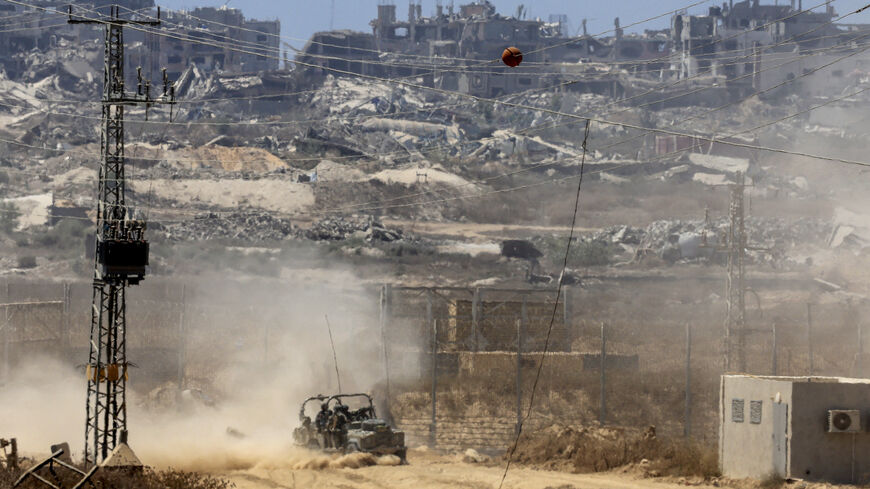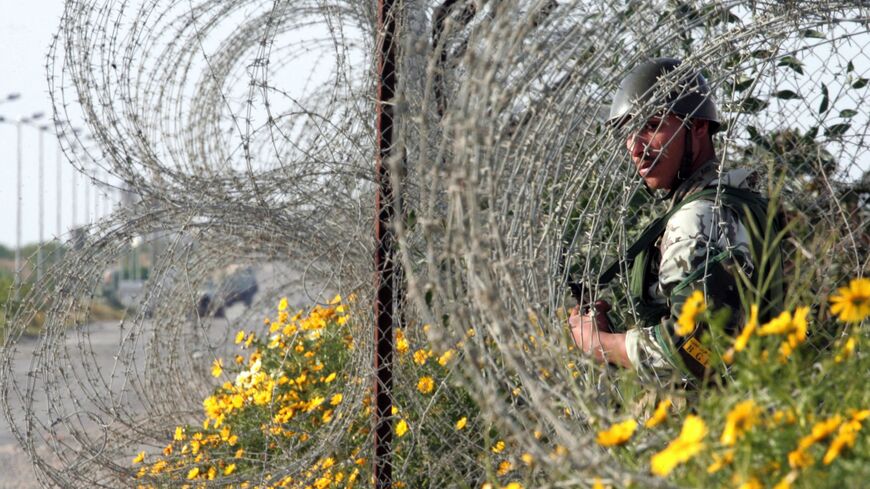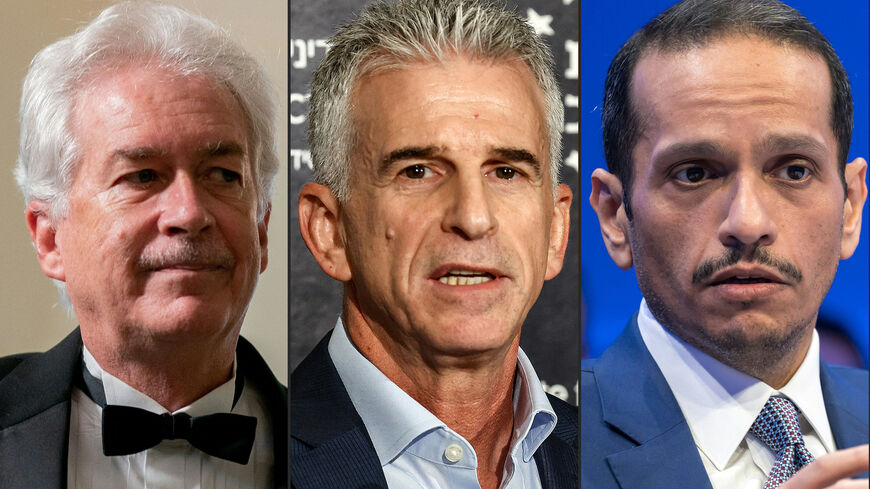Blinken meets with Egypt's Sisi as Philadelphi Corridor remains sticking point in Gaza talks
Cairo will host a new round of talks this week to secure an agreement on a Gaza cease-fire and hostage release deal as US Secretary of State Antony Blinken tours the region to mobilize support.

Egyptian President Abdel Fattah al-Sisi hosted US Secretary of State Antony Blinken in the northern town of el-Alamein to discuss Gaza cease-fire negotiations and efforts to restore security and stability to the region.
During their meeting, the two officials agreed on the need to secure a deal between Hamas and Israel to end the hostilities in the Gaza Strip and release the remaining hostages held by the Palestinian group inside the enclave, according to a statement by the Egyptian presidency.
“The cease-fire in Gaza must be the beginning of broader international recognition of the Palestinian state and the implementation of the two-state solution, as this is the basic guarantor of stability in the region,” Sisi told Blinken during their sit-down.
The Egyptian leader also said “the time has come to end the war” that has been raging for more than 10 months in the Gaza Strip, warning of the risk of its expansion through the region in such a way “that is difficult to imagine its consequences.”
Blinken briefed Sisi on his visit to Israel a day earlier, stressing the United States’ commitment to reach a cease-fire. He praised Egypt’s role toward that end, the presidency statement added.
The meeting was attended by Foreign Minister Badr Abdelatty and intelligence chief Abbas Kamel.
Blinken later held separate talks with Abdelatty. According to an Egyptian Foreign Ministry statement, the two discussed their countries' bilateral relations and joint efforts to end the war in Gaza as well as regional issues, including the war in Sudan.
Abdelatty expressed hope that the current round of negotiations “will witness a sincere Israeli political desire to stop the war in Gaza,” which he said is “the only way not only to put an end to the humanitarian suffering in the Gaza Strip, but also to prevent the regional situation from spiraling in a way that threatens the stability" of the entire Middle East.
He further noted his country’s view that peace and stability in the region can only be achieved through a permanent and just solution to the Palestinian cause, based on the establishment of an independent Palestinian state on the 1967 borders with east Jerusalem as its capital.
Blinken arrived in Egypt earlier on Tuesday in the second leg of a regional tour and will fly to Doha later on Tuesday for similar talks with Qatari officials.
Talks to continue over Philadelphi Corridor
The United States, Egypt and Qatar resumed talks on a cease-fire in the Gaza Strip last week. Doha hosted the first round of negotiations, which were attended by Kamel, CIA Director William Burns, Israeli Mossad Director David Barnea and Qatari Prime Minister Sheikh Mohammed bin Abdulrahman bin Jassim Al Thani. Hamas did not attend the talks.
The mediators issued a joint statement after the Doha meetings concluded last Friday, putting forward a new proposal described as “bridging the gaps” between the disputing sides. Hamas, however, rejected the proposal as aligned with Israel’s demands, namely its refusal to fully withdraw its troops from Gaza and from the Philadelphi Corridor on the Gaza-Egypt border.
Yet on Monday, after President Joe Biden accused Hamas of “backing away” from the cease-fire process, Hamas issued a statement saying the “misleading claims … do not reflect the true position of the movement, which is keen to reach a ceasefire.”
The Philadelphi Corridor, a 14-kilometer (8.7-mile) demilitarized buffer zone along the border between the Gaza Strip and Egypt, has been one of the main sticking points in the cease-fire negotiations.
After Israel withdrew from Gaza in 2005, it signed the Philadelphi Accord with Egypt, which granted Cairo the right to deploy some 750 border guards along the buffer zone along the Egyptian side of the border.
Israel, which took full control of the buffer zone back in May, says that its troops are deployed there to prevent arms and ammunition smuggling from Egypt into Gaza. An Israeli official told the Times of Israel that the United States “did not reject Israel’s strategic logic” concerning the corridor.
The source, who is familiar with the talks held between Blinken and Israeli Prime Minister Benjamin Netanyahu on Monday, said that efforts will continue this week to reach a solution that would protect Israel’s security interests. Hamas, meanwhile, wants all Israeli troops out of the buffer zone.
Egypt also opposes Israel's military presence in the Philadelphi Corridor. Israeli media outlets reported that Egypt agreed that Israel would not have to set a deadline for its withdrawal from the corridor during discussions in Cairo. However, a high-level Egyptian source denied the news. Speaking to the Egyptian state-affiliated al-Qahera news channel on Monday, the source stressed Egypt’s commitment to a complete Israeli withdrawal from the Philadelphi Corridor.
The mediators and Israel are expected to resume discussions on a Gaza cease-fire in Cairo this week.
Speaking to reporters in Tel Aviv on Monday, Blinken said his current visit to the region aims to “bring an agreement for a cease-fire in Gaza and the release of hostages across the finish line.”
The US official’s current tour marks his ninth visit to the region since the Israel-Hamas war broke out in the Gaza Strip Oct. 7, 2023.








